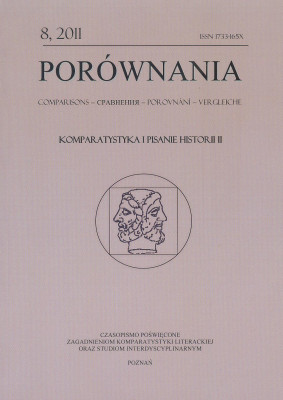Hypertext and Intertextuality. Affinities and Discordances
Intertextuality, the ability of text to be linked with other texts, as its inherent quality and the inseparable part of its ”texture” is often, within the context of the new media, compared to hypertextuality: the ability of text to be linked with other texts by means of electronic links. My comparative approach to these two broad literary categories, intertextuality and hypertextuality, is an attempt to differentiate their respective models from each other. The latter is neither a ”dramatised” form of intertextuality nor an additional level of architextuality. The relation between both categories is much more complex that intertextualists and hypertextualists have initially thought. In contrast with Michel Riffaterre’s George Landow’s findings I suggest that hypertext can be seen as in fact anti-intertextual. Showing few examples from fictional and non-fictional hypertexts, especially from the classical computer novel afternoon, a story by Michael Joyce, I try to demonstrate that digital text written and read within the interconnected network of narrative segments can even be a parody of intertext. Though these new findings do not undermine the general notion of close affinities between the two concepts in question, it is my hope that they deepen the complexity of this relationship.
ISSN: 1733-165X
| Article Title | Type | Size |
|---|---|---|
| Pisarski | [pdf] | [554 KB] |
